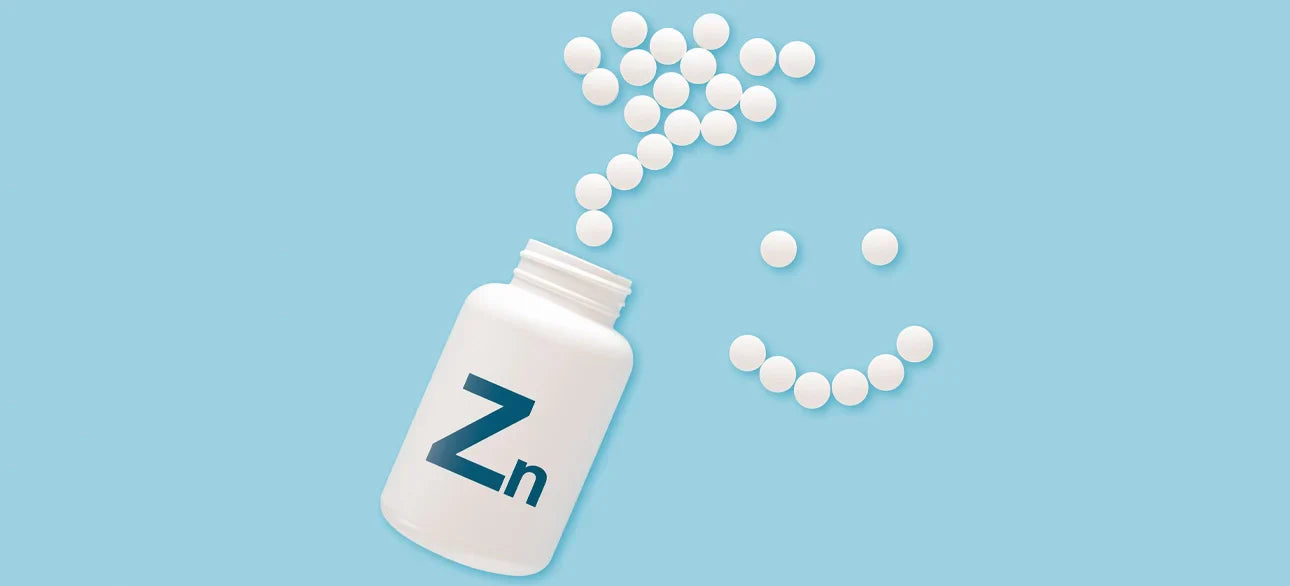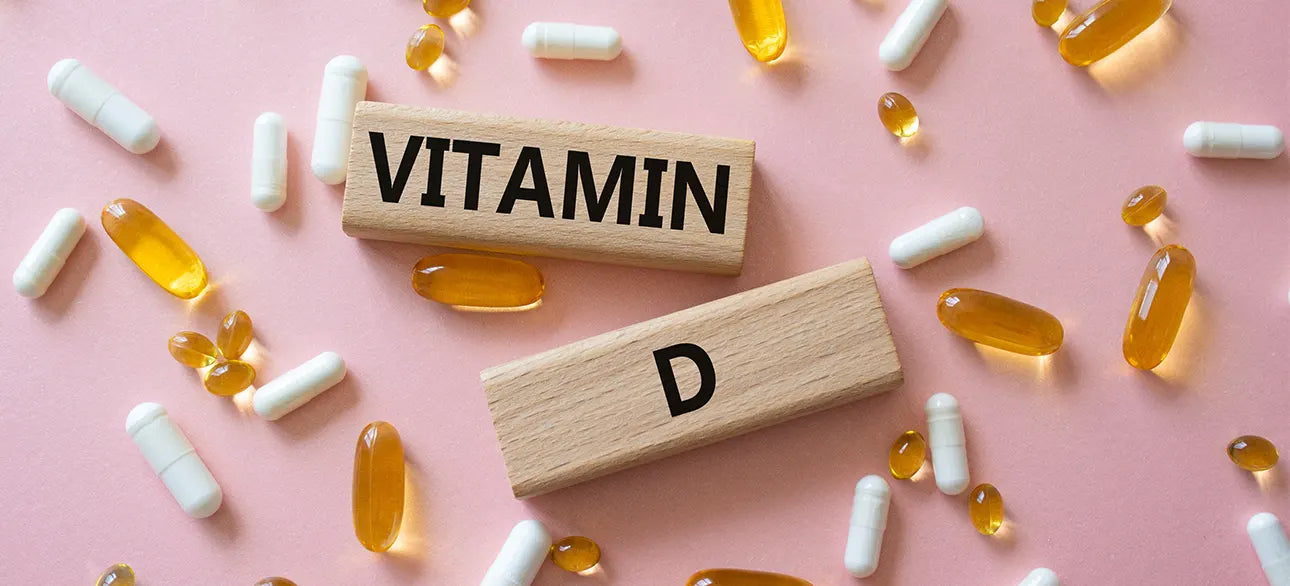10 Best Supplements That Help Fight Inflammation
Explore effective natural supplements like curcumin, fish oil, ginger, and more that help calm chronic inflammation and promote healing for better health and mobility.
Advertiser Disclosure: We independently select all the products. If you click through links we provide, we may earn a commission.

Key Takeaways
- This guide explores 10 science-backed supplements known to help reduce inflammation naturally.
- Learn how curcumin from turmeric effectively reduces inflammation and joint pain, especially when combined with black pepper for improved absorption.
- See how vitamin C, Curcumin, ginger and fish oil works to neutralize free radicals, reduce inflammation, and boost the immune system.
- Learn about the benefits of vitamin E in reducing inflammation.
- Learn how Boswellia, or Indian Frankincense, helps reduce joint pain
- We provided a comprehensive resource for choosing effective supplements to manage inflammation and support long-term wellness
Your body defends itself against stress, injury, or infection with inflammation. But when it sticks around too long, it can cause harm. Heart disease, arthritis, and some metabolic issues are the products of Ongoing (or chronic) inflammation.
Many turn to natural remedies to rid themselves of inflammation. Anti-inflammatory supplements are the most popular option of all. They're said to contain nutrients that calm the body's response and speed up healing.
So, which ones really work? And which are safe to take long term?
I'll give you the 10 best supplements for inflammation and all you need to know about each. But first, let's talk about things you should know before you buy any supplement.
What to Know Before You Choose an Anti-Inflammatory Supplement?
Before you buy a supplement, it's important to know that not all of them are created equal. Some may not even be safe for you. Here’s how to be a smart shopper:
- Choose Quality Brands: Opt for companies that follow Good Manufacturing Practices (cGMP) and use third-party labs like USP, NSF, or ConsumerLab to independently verify strength and purity. This gives some peace of mind that what’s listed on the bottle is actually inside.
- Check Labels for Dosage: Always read the directions and serving sizes on the packaging. More isn’t always better, and the optimal dose varies widely by supplement and ingredient.
- Talk to Your Doctor if Needed: If you’re pregnant, breastfeeding, managing a health condition, or taking other medications, a quick chat with your healthcare provider is a must. Some ingredients can interact with prescriptions or aren’t recommended during pregnancy.
- Prioritize Food First: Whole foods are still the gold standard for anti-inflammatory benefits, providing a rich mix of nutrients and protective compounds. Supplements can play a supporting role, especially if you are lacking the essential nutrition you need.
1. Curcumin (from Turmeric)
Curcumin is the potent compound behind turmeric’s bright yellow color and its long history in traditional medicine. Studies show it can help reduce inflammation by blocking certain triggers in the body that cause it to flare up.
Curcumin isn't easily absorbed alone. That’s why it’s often combined with black pepper extract (called piperine). It kicks up absorption by up to 2,000%.
Curcumin is a most effective relief for joint pain, stiffness, and other signs of chronic inflammation. It's easily taken via capsules, powders, and pills.
2. Fish Oil (Omega-3 Fatty Acids
Fish oil is packed with omega-3 fatty acids, specifically EPA and DHA, which are known for their wide range of health benefits, including their ability to fight inflammation. A review on PubMed, shows that omega-3s can reduce the production of inflammatory molecules like eicosanoids and cytokines.
Fish oil is especially beneficial for rheumatoid arthritis and other inflammatory disorders. Its omega-3s also promote heart health, improve joint function, and can even support mental well-being by reducing brain inflammation.
According to Dr. Emily Carter, MS, RDN Registered Dietitian Nutritionist & Functional Medicine Specialist
Chronic inflammation is a key driver of many common diseases. Incorporating natural anti-inflammatory supplements like curcumin and omega-3s can be a safe and effective strategy to support the body’s healing process and reduce long-term health risks.
You’ll find fish oil supplements in both liquid and capsule forms. When choosing one, look for products that have higher levels of EPA and DHA, as these are the most effective in reducing inflammation.
3. Ginger
Ginger has been widely studied for its anti-inflammatory properties, which make it one of the go-to plant-based supplements for reducing inflammation. Its active compounds, such as gingerols and shogaols, block pro-inflammatory molecules such as prostaglandins and leukotrienes.
Ginger has proven effective for conditions like osteoarthritis, so it's a popular among people dealing with joint pain, muscle stiffness, or mild swelling. Unlike some prescription treatments, ginger tends to be easier on the stomach and is generally well-tolerated by most people.
You can find ginger in various forms, including capsules, extracts, and powders, depending on your preferences and how much you need.
4. Vitamin D
When one has medical conditions like autoimmune diseases and chronic illnesses, being low on vitamin D isn't an option. Such persons are at high risk of increased inflammation. High Vitamin D levels keeps the immune system running.
Foods like fatty fish, fortified dairy, and sunlight are natural sources of vitamin D, But the natural sources sometimes aren't enough. Many people need supplements to meet their daily intake.
Just remember: it’s important to have your levels tested regularly and follow proper dosing, as too much vitamin D can cause side effects.
 5 Best Supplements that Help Fight Inflammation
5 Best Supplements that Help Fight Inflammation
5. Vitamin C
Vitamin C is a popular nutrient. It neutralizes free radicals which trigger or worsen inflammation in the body. This makes it a major boost to the immune system and an inflammation control.
inflammatory markers like C-reactive protein (CRP) and interleukin-6 go up when Vitamin C is low. They cause stress, illness, and chronic inflammation. Vitamin C supplements can prevent such.
Fruits like oranges, kiwi, and strawberries naturally produce vitamin C. But these may not yield enough of the needed nutrients. Certain medical conditions need much more. Also, Vitamin C is water-soluble, and doesn't stay in the body for long. Dietary supplement options can help you get all the vitamin C your body needs.
6. Vitamin E
It's a fat-soluble vitamin and an antioxidant that prevents long-term inflammation . Usually, such triggered by oxidative stress and causes cell damage.
Research shows that with vitamin E in the body, inflammation markers like CRP and IL-6 drop significantly. It is most active in people with metabolic conditions or age-related inflammation.
Vitamin E is gotten easily from natural sources. For instance, eating foods like nuts, seeds, and vegetable oils are sure to produce Vitamin E in your body. However, you'd be better off taking supplements when you've got a specific health issue and your diet won't cut it. Just keep in mind that your body stores it because it’s fat-soluble, so be careful not to take more than recommended.
7. Green Tea Extract
Green tea extract is gotten from plant compounds that contain some antioxidants called catechins. Catechins help calm inflammation in the body. EGCG is an example of catechins that block triggers of chronic inflammation.
Arthritis and inflammatory bowel disease have been studied to see what effects the green tea extract has. These studies show reduced oxidative stress and an ease in inflammation-related symptoms with continued use.
While sipping green tea does the job, the extract is more concentrated, and does the job quicker. Capsules or powdered forms are much simpler and more potent when compared to several cups of green tea.
8. Bromelain
Bromelain is a natural enzyme found in pineapples. It's got a track record in swelling reduction and healing injuries or surgery wounds. Its job is simple: break down those proteins involved in the body’s inflammation process.
Researchers have tried to answer the questions: "does bromelain ease joint pain, sinus issues, and post-exercise muscle soreness?". It showed promise as a natural alternative, and a helpful addition to standard anti-inflammatory medications in multiple tests.
Bromelain is safe to use if you haven't got pineapple allergies. Please check with your doctor before using it if you take blood thinners. As we discussed in Heal N Soothe Review, it comes in easy-to-use capsules or tablets. The body absorbs it best when used between meals.
9. Boswellia (Indian Frankincense)
Boswellia is primarily sourced from tree resin. Using boswellia has its root deep in Ayurvedic medicine. It gets its medicinal kick from its boswellic acids. These acids take care of certain enzymes that cause inflammation in the body.
Clinical trials have found that regular use can improve how joints move and feel. Based on this, Boswellia should bring relief to osteoarthritis or rheumatoid arthritis patients. This is owing to its ability to ease their symptoms: joint pain, stiffness, and swelling.
It's proven to be great for long-term use. This is because it tends to be easier for the body to absorb, unlike some conventional medications. You’ll usually find it in well-labelled capsules or tablets. Those labels disclose how much active compound each dose contains.
10. Resveratrol
Resveratrol is a plant compound. It could be sourced from the skin of red grapes, some berries, and even red wine. It’s got antioxidant and anti-inflammatory effects, and it's especially soothes aging and overall metabolic health.
Studies suggest it works by calming the body’s inflammatory pathways and helping manage oxidative stress. These two things usually fall out of rhythm with chronic illness or age.
While you’d have to drink a lot of wine or eat tons of grapes to get enough, supplements offer a concentrated dose. Most come from Japanese knotweed or red grape extract, and they’re often used by people looking for extra support against long-term, low-grade inflammation.]
The Bottom Line
One hack to staying healthy is getting inflammation under control. Having a balanced diet and an active life are a good start to checking inflammation. However, supplements can take you the rest of the way, especially if you're not feeling too well.
Long-term inflammation can increase the risk of conditions like type 2 diabetes, heart disease, and autoimmune disorders. Many supplements with anti-inflammatory nutrients and antioxidants may help reduce inflammation. When choosing a supplement, buy from a reputable manufacturer with cGMP certification, follow dosage instructions, and consult a healthcare professional if pregnant, nursing, or on medication.
The supplements on this list, like FlawlessBloom Joint XL Plus, have all been checked out. They're safe and use natural ingredients. But each supplement may have different effects on different people. Get a nod from your doctor first before starting any supplements. That way, you'll be sure it'll help and not harm you.
FAQs
References
Flawless Bloom has strict sourcing policies and relies on primary sources such as medical organizations, academic institutions, governmental agencies, and peer-reviewed scientific journals. Read more about how we ensure our content is accurate, thorough, and unbiased by reading our editorial process.
- Potential Applications of the Anti-Inflammatory, Antithrombotic and Antioxidant Health-Promoting Properties of Curcumin: A Critical Review - https://www.mdpi.com/1661-3821/4/4/31#
- n-3 polyunsaturated fatty acids, inflammation, and inflammatory diseases - https://pubmed.ncbi.nlm.nih.gov/16841861/#
- The Effect of Omega-3 Fatty Acids on Rheumatoid Arthritis - https://pmc.ncbi.nlm.nih.gov/articles/PMC7362115/
- Vitamin D deficiency is associated with an increased autoimmune response in healthy individuals and in patients with systemic lupus erythematosus https://pmc.ncbi.nlm.nih.gov/articles/PMC3149865/
- Decreased levels of plasma vitamin C and increased concentrations of inflammatory and oxidative stress markers after stroke https://pubmed.ncbi.nlm.nih.gov/14671251/
- Regulatory role of vitamin E in the immune system and inflammation https://pmc.ncbi.nlm.nih.gov/articles/PMC7011499/
- Chronic Inflammatory Diseases and Green Tea Polyphenols https://pmc.ncbi.nlm.nih.gov/articles/PMC5490540/
- Bromelain: a Potential Bioactive Compound: A Comprehensive Overview from a Pharmacological Perspective https://pmc.ncbi.nlm.nih.gov/articles/PMC8067380/
- A standardized Boswellia serrata extract shows improvements in knee osteoarthritis within five days-a double-blind, randomized, three-arm, parallel-group, multi-center, placebo-controlled trial https://pmc.ncbi.nlm.nih.gov/articles/PMC11291344/
- Influence of Resveratrol on the Immune Response https://pmc.ncbi.nlm.nih.gov/articles/PMC6566902/































